South Africa and Zambia confer on trade and economic affairs
Notice: Undefined index: catFilterList in /home/zambi/public_html/wp-content/plugins/wp-likes/api.php on line 243
LUSAKA, Monday, 13 April 2020 Treasury Statement For Immediate Release
– Zambia and South Africa have formed a private sector working group to create a framework that is targeted at ensuring the smooth flow of essential goods and services, during the Covid19 lockdown of most Southern African Development Community [SADC] countries.
Deputy Secretary to Cabinet CHRISTOPHER MVUNGA will chair the working group. At the economic sustainability and emergence purpose meeting held in Lusaka, Thursday, the two countries discussed the necessity of ensuring that South African Chain Stores operating in Zambia open their doors wider to local producers and suppliers to ensure that there is business continuity and empowerment during the Covid-19 period and beyond.
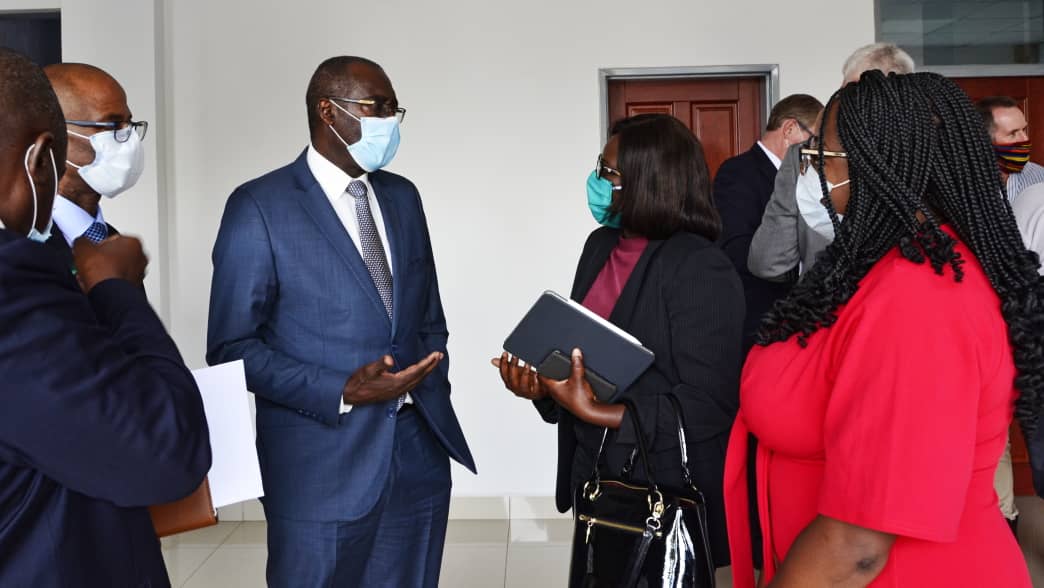
Finance Minister Dr BWALYA NG’ANDU in Lusaka Monday 13th April 2020
Zambia was represented at the economic sustainability and emergence purpose meeting held at the Ministry of National Development Planning by Fisheries Minister Professor NKANDU LUO, Development Planning Minister ALEXANDER CHITEME, Commerce Minister CHRISTOPHER YALUMA, Transport and Communication Minister MUTOTWE KAFWAYA and Finance Minister Dr BWALYA NG’ANDU. Others were Development Planning Permanent Secretary CHOLA CHABALA, Monitoring and Evaluation Permanent Secretary DANIES CHISENDA, Commerce and Industry Permanent MUSHUMA MULENGA, and ZRA Commissioner General KINGSLEY CHANDA.
The Zambian private sector was represented by officials from the Zambia Association of Chamber of Commerce and Industry [ZACCI], Zambia Association of Manufacturers [ZAM], Zambia National Farmers Union [ZNFU], Zambia Horticultural Association, and Zambia Private Sector Alliance.
South Africa was represented by the South African High Commission and members of the Association of South African Businesses in Zambia.
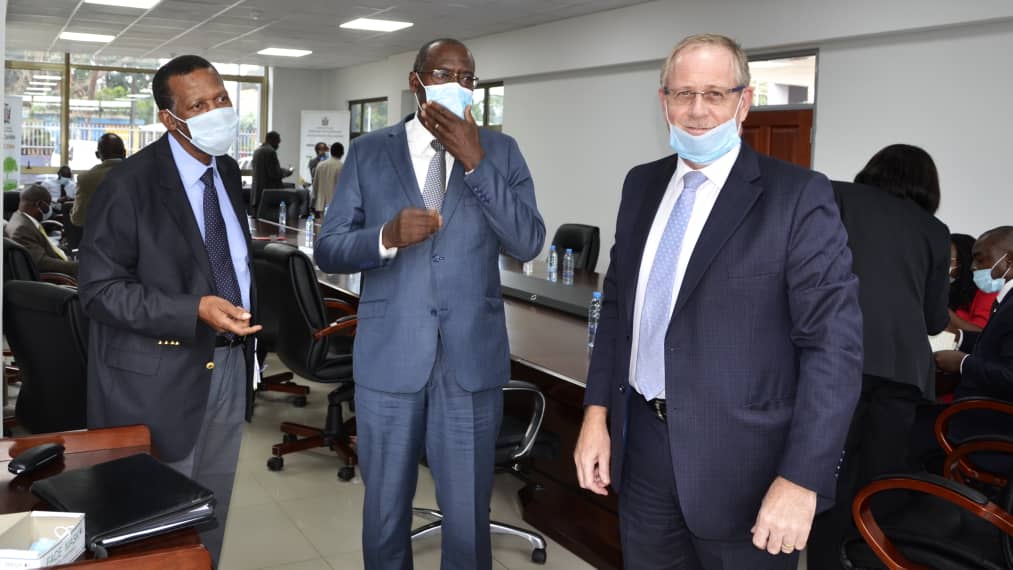
Finance Minister Dr BWALYA NG’ANDU and South African High Commissioner GEORGE NKOSINATI TWALA
Speaking at the event, Finance Minister Dr BWALYA NG’ANDU, who was also the convenor and Chairperson, said the Zambian Government has placed sustenance of the value chain and continued empowerment of local businesses at the centre of its economic sustainability and emergence purpose plans for the immediate term and the future.
Dr NG’ANDU took the opportunity to encourage the Zambian private sector to rump-up participation in the value-chain and take advantage of the internal market platforms while maintaining quality standards, regular supply and stable prices to the greatest extent possible.
And South African High Commissioner GEORGE NKOSINATI TWALA said his office is ready to work with Zambian authorities to facilitate strengthened engagement between private sector players of the two countries and ensure that the value and supply chains are kept in motion.
Mr. TWALA called for a proactive review of trade and economic affairs that need to be reviewed in the entire value chain to ensure a fast paced programme that will mount a lasting positive impact on the future economic relations between the two countries.
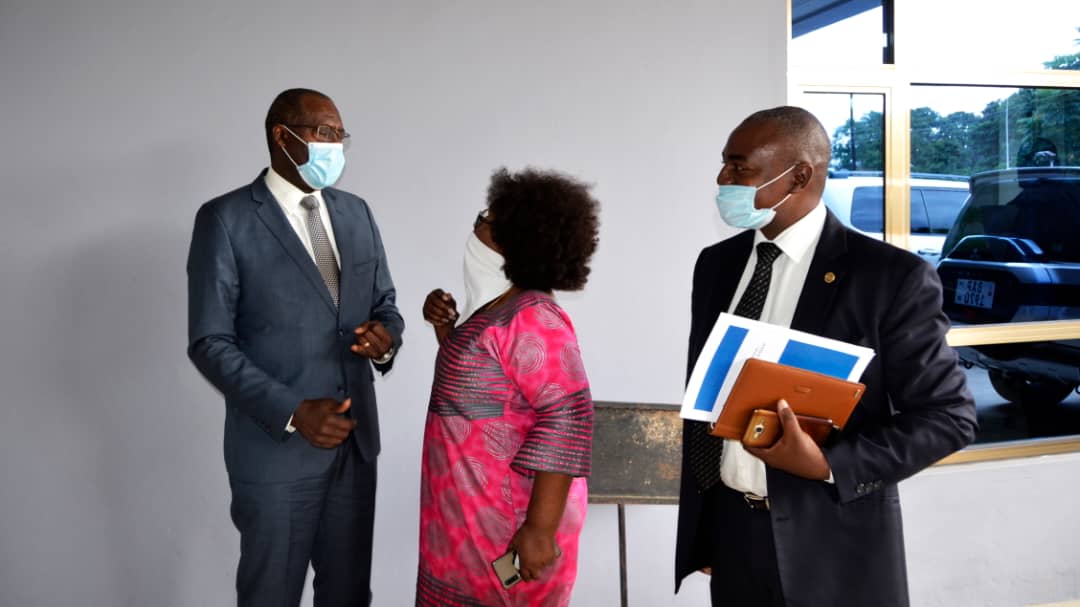
Finance Minister Dr BWALYA NG’ANDU and Livestock and Fisheries Minister Professor Nkandu Luo
Among the other key issues discussed was import substitution, mutual market access, supplier payment systems, banking and financial services, transport and logistics, smoothening of regulatory matters, border clearance and transit insurance, and the creation of the Zambia and South Africa working group on trade and economic facilitation during Covid-19 and beyond.
Making a contribution to the deliberations, Livestock Minister Professor NKANDU LUO said her Ministry was in the process conducting an inventory of livestock import-export permits.
She added that Covid-19 had presented an opportunity for the country to adopt an evidence based approach in assessing the impact of fresh and processed cross-border consumer products on the health and well-being of citizens.
And National Development Minister ALEXANDER CHITEME said as a term of reference for the working group, the issue of rental charges in major shopping malls located in different parts of the country needs to be examined conclusively to ensure that Zambian businesses are accommodated on more affordable terms and conditions especially now that Covid-19 had impacted negatively.
Transport and Communications Minister MUTOTWE KAFWAYA assured the meeting that his Ministry had commenced engagement with the Ministry of Health and other stakeholders in the logistical-chain in order to develop guidelines and rules for cross-border transporters during the Covid-19 lockdown period in some SADC Countries.
Speaking at the same event, Shoprite General Manager CHARLES BOTA said the chain store buys 43% of its goods from the local market and 39% from local agents who import from outside the country. He stated that the shop only imports 18% and took the opportunity to encourage local small-scale businesses to form cooperatives and benefit from economies of scale, value addition and quality and business improvement schemes.
ZACCI President JEROME KAWESHA called on South African Chain Stores to engage the Zambian private sector regularly and deal with the perception that they deliberately constrain access of local producers and suppliers into their supermarkets and other businesses such as hotels.
“We would like to see South African businesses in Zambia signing off-take agreements with our people [local businesses],” said Dr KAWESHA while the ZAM representative ROSETTA CHABALA added that during this period, “there is need to exhaust local supply capacity before resorting to imports.” After South-Africa, Angola and Tanzania in that order, the Zambian economy is the fourth largest in the fourteen member SADC Region.
South Africa is a member of the powerful G20 and the BRICS [Brazil, Russia, India, China and South Africa] economic groupings, while Zambia is also a member Africa’s biggest trade block, COMESA, whose headquarters it also hosts.
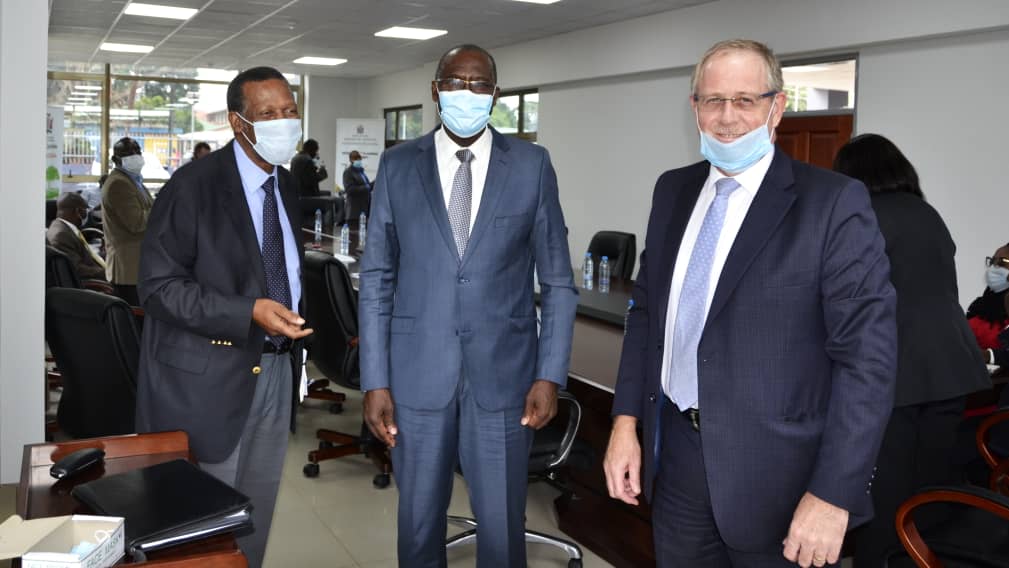
Finance Minister Dr BWALYA NG’ANDU and South African High Commissioner GEORGE NKOSINATI TWALA in Lusaka
The Zambian Government team also held a meeting with the Business Council Emergency Task Force [BCET] Against Covid-19, at which the Chairperson, JASON KAZILIMANI, proposed some measures for consideration by the Government, such as:
1. Prohibiting and curtailing speculative trading in the Kwacha;
2. Promoting close engagement of the banking and financial services sector and Covid-19 affected borrowers to forestall business stagnation and closures;
3. Facilitation of the importation of fuel and fertilizer by the private sector;
4. Cutting all non-priority expenditure from the budget; and,
5. Examining the full impact of the employment code of 2019 on businesses during Covid-19. Dr Ng’andu thanked the BCET team for the presentation and reiterated the Government’s commitment to work closely with the private sector, investors and other cooperating partners in developing solutions that will result into the best case scenario for the economy under the current Covid-19 circumstances. Issued by:
Chileshe Kandeta Spokesperson MINISTRY OF FINANCE
REPUBLIC OF ZAMBIA Ministry of Finance www.mof.gov.zm
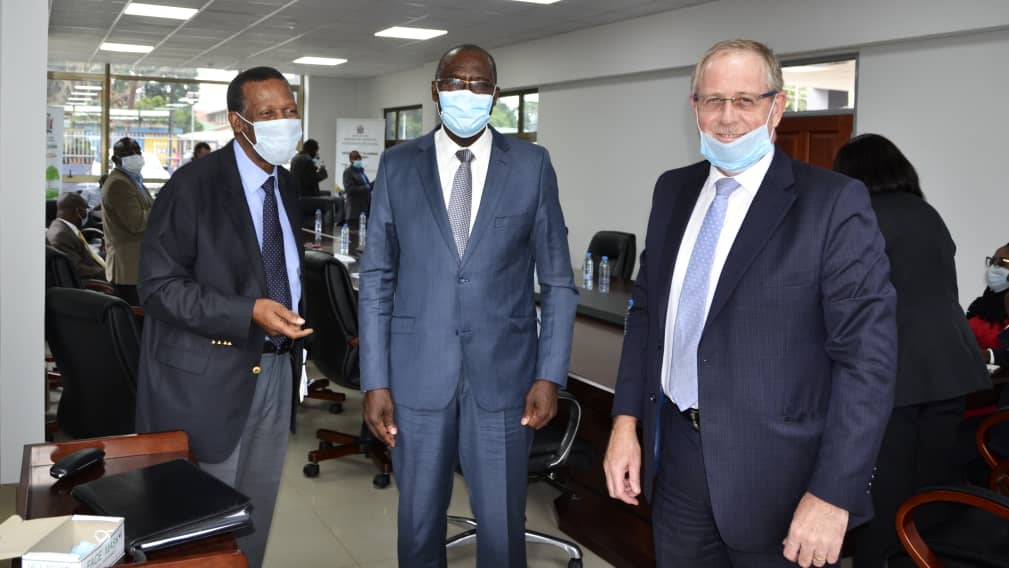
Finance Minister Dr BWALYA NG’ANDU and South African High Commissioner GEORGE NKOSINATI TWALA in Lusaka
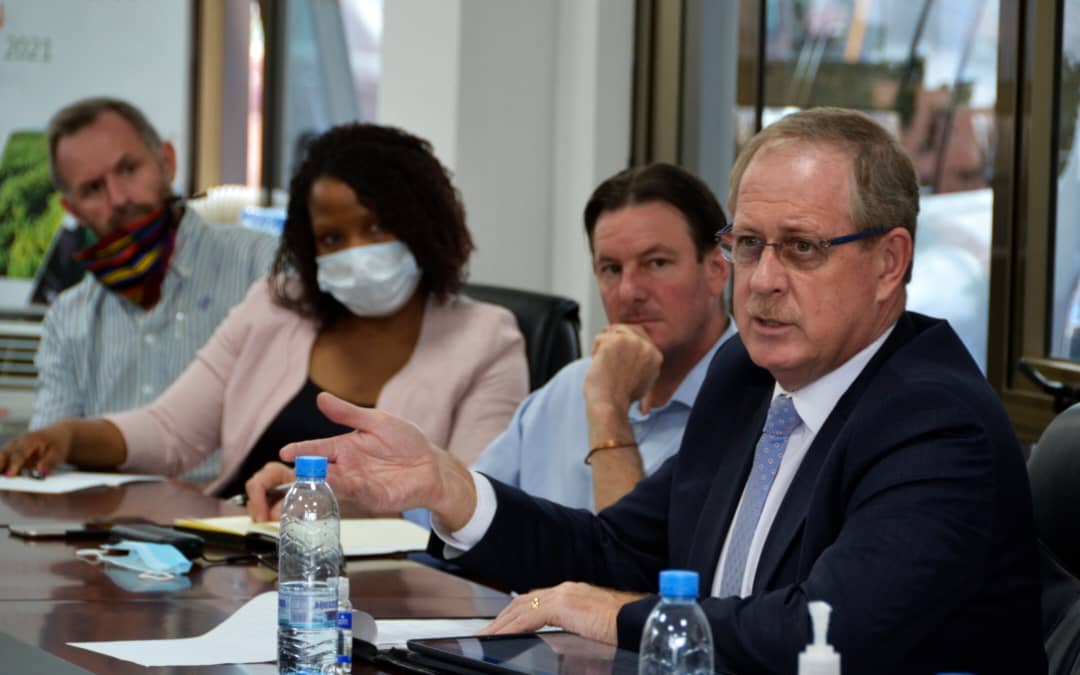
South African High Commission and Association of South African Businesses in Zambia in Lusaka




















